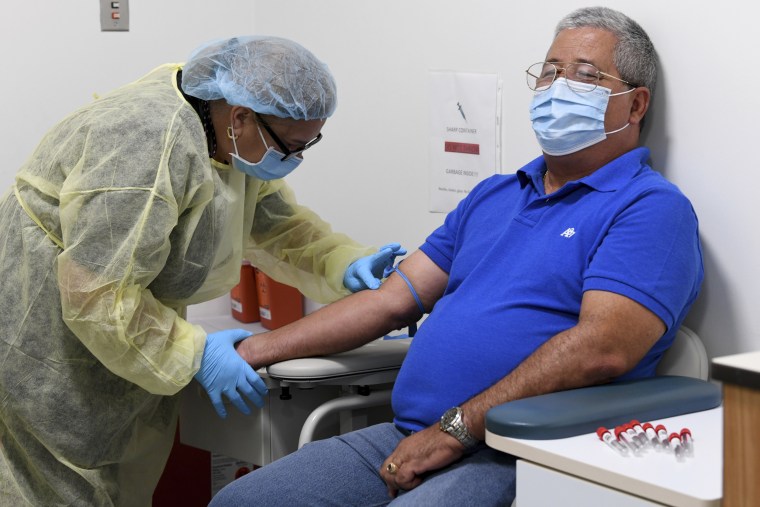About 2,400 years ago, the Greek physician Hippocrates made a startling discovery: A respiratory disease known as the "Cough of Pernithus" appeared to come and go with the seasons, causing influenza-like outbreaks in ancient Greece in the wintertime before subsiding for much of the rest of the year.
Hippocrates' observations became the earliest known reference to the seasonal nature of an infectious disease. Since then, scientists have noted numerous other diseases that peak in certain seasons — measles in the spring and influenza in the winter, for instance. Now, as the coronavirus continues to spread around the world, researchers are eager to learn whether it will follow a seasonal cycle.
So far, there's no firm evidence that environmental conditions tied to the changing seasons have any influence on the transmissibility of Covid-19. Yet health officials have warned that a second wave could be looming as the Northern Hemisphere inches into fall and winter and cold weather drives people indoors, where the risks of spreading the virus are greater.
Experts say it's too soon to know whether, like influenza, the coronavirus will peak in the winter. And even for diseases that are known to come and go with the seasons, the reasons are still something of a mystery. In general, they said, the seasonality of infectious diseases is a question without an easy answer. But for countries bracing for the coming months of the pandemic, it's one that has enormous consequences for public health.
"We really don't understand a lot about seasonality," said Dr. Arnold Monto, a professor of epidemiology and global public health at the University of Michigan in Ann Arbor. "We are much better at knowing what viruses do than why they do it."
Because the coronavirus affects the respiratory system, it's thought that it could behave similarly to other respiratory infections that surge in the wintertime. Other known coronaviruses, including the one that causes the common cold, are known to spread more easily in the winter, when cold, dry conditions help them survive longer in tiny droplets that are expelled when people cough or sneeze.
"Seasonal changes in transmission have to do with the ability of the virus to rapidly propagate through a population," said Micaela Martinez, an infectious disease ecologist at Columbia University in New York City.
Some of the mechanisms are easier to trace than others. With measles, for example, infections tend to correspond with the school year.
"When schools begin in the fall, we start to see cases climb and then they hit their peak in the spring and go away in the summer," Martinez said. "We see that happen over and over."
Seasonal cycles are also easier to understand with so-called vector-borne diseases, such as West Nile virus.
"If mosquitoes aren't flying around and biting people, you're obviously not getting a lot of West Nile cases," said Dr. David Fisman, an epidemiologist at the University of Toronto.
But for other diseases, including Covid-19, it's much more challenging to tease out any seasonal patterns, if there are any at all — and why they occur.
One of the main reasons is that there isn't enough data yet, Martinez said.
"We have yet to experience a whole cycle and one full year of transmission in any location, so we're unable to actually measure what the relationship is between transmission and things like temperature and humidity," she said.
And even though the Northern and Southern hemispheres have experienced different seasons since the pandemic began, the inconsistent rollout of interventions such as lockdowns and border closures — and their severity — will likely skew the results.
The different seasons also do more than just change temperature and humidity.
"People do different things at different times of the year," Monto said. "We have all sorts of ideas about the influence of heat and humidity, but we also know, and as we've seen dramatically with Covid, that a lot is dependent on how people behave."
In May, researchers at Harvard University released preliminary results of a study that looked at the impacts of weather and air pollution on the transmission of Covid-19 in more than 3,700 locations around the world. The results, which have yet to be peer-reviewed, indicated that it's unlikely that weather alone will influence the virus's ability to spread.
Indeed, struggles to contain the virus were mirrored in both the Northern and Southern hemispheres. Those experiences suggest that any changes with the seasons are largely negligible and that countries everywhere should remain as vigilant as ever, Fisman said.
Public health officials have been concerned that as temperatures fall in the coming months, people will be forced indoors, where it's trickier to practice social distancing. Many states are also beginning to lift restrictions, such as allowing some indoor dining and easing mask mandates, which could culminate in a perfect storm for new infections.
"In the 1918 flu pandemic, there were four waves, but 60 percent of the deaths were in the second wave. It was the fall that was the killer," Fisman said. "Even if you want to be cautious and conservative, you'd have to acknowledge that that's a possibility."

